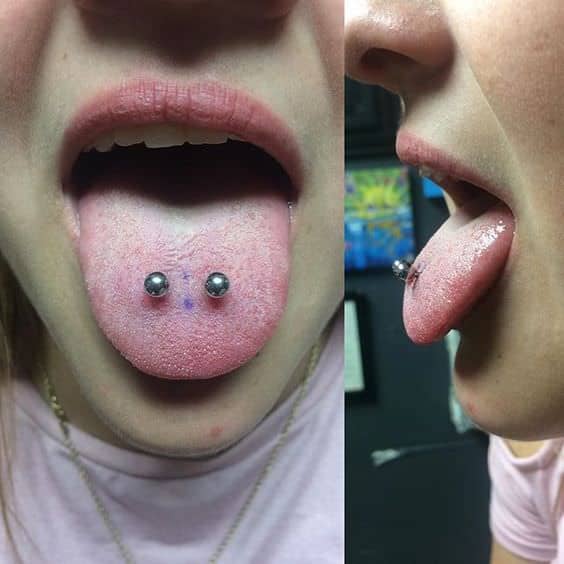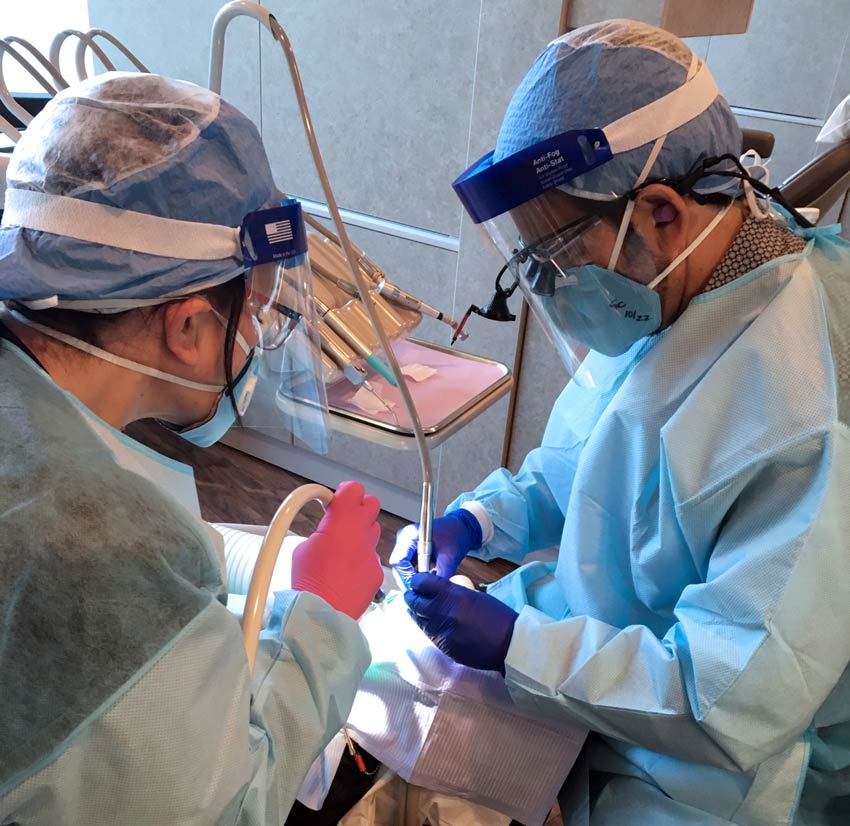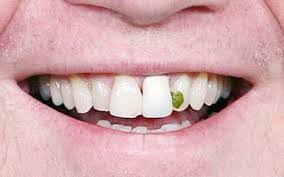By Jaime O’Neill DDS
Body art, including tattoos and piercing, have grown in popularity over the past 20 years or more. While I have no issue with self expression, I do worry about the impact of tongue piercing on dental health, as do most dentists. Without proper care, serious health issues can emerge.
The majority of tongue piercings we see involve a ball or a ring. The balls most often are barbells, sometimes a single large one or a number of smaller ones in a pattern. If a ring is the choice, usually there’s just one.
So how does tongue piercing affect your teeth and what can you do to avoid dental health issues while still being able to self-express?
Tooth Movement
Most tongue piercers keep their jewelry in place at all times because if they remove it for very long the tongue will quickly heal, closing the space. The problem is that the stud or ring can cause constant pressure against the back teeth. This causes the teeth to eventually move, creating unnatural gaps between the teeth. These gaps become perfect traps for food which can then lead to decay of the gums and teeth not properly and regularly cleaned.
Cracking and Chipping
It’s easy to knock tongue jewelry against your teeth when you are talking, eating or even sleeping. This inadvertent contact between teeth and piercing can cause the tooth enamel to chip away, exposing the sensitive layers of dentin and pulp underneath. An accidental hard bite on a tooth with the jewelry can cause a crack in the enamel that extends into the nerves of the tooth. This can result in more serious problems that could require surgery.
Bacterial Infections and Swelling
Even without tongue piercings, the average mouth is a moist environment that contains millions of breeding bacteria. It’s an ideal place for infection. This is amplified with tongue piercings, particularly in the days immediately following the piercing procedure. As a result, serious infections of various types can occur that can impact the entire body. It’s also possible for a piercing to cause your tongue to swell, potentially blocking your airway.
How to Avoid Problems
You can self express with tongue piercings and avoid health issues but you’ll need to be careful about the type of jewelry you use and be diligent in your dental care. Here are several suggestions from the Association of Professional Piercers on best tongue piercing practices:
- Replace the initial jewelry, which has extra room to account for swelling, with a snugger piece that fits closer to the tongue. This reduces the chances of the jewelry contacting the teeth and gums.
- Balls should be made of an approved polymer, which will reduce the risk of damaging the teeth.
- A smaller ball should be used on the underside of the tongue to reduce contact with the sublingual area of the oral cavity.
From a dental care standpoint, I suggest:
- Keeping your mouth clean by regular flossing and brushing
- Rinsing your mouth frequently with an approved mouthwash
- Removing your jewelry on occasion to properly clean your tongue
- Avoid playing with your jewelry in your mouth as in rubbing your tongue against your teeth, an easy habit to develop
- Removing your jewelry during any contact sport
- Checking your piercing ends frequently to make sure they are secure






